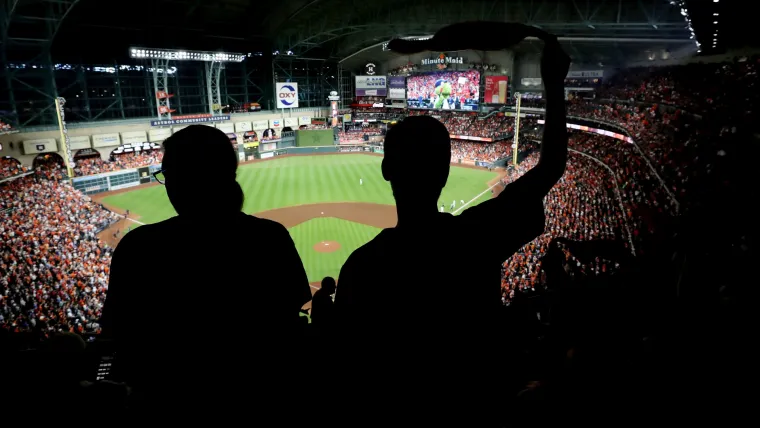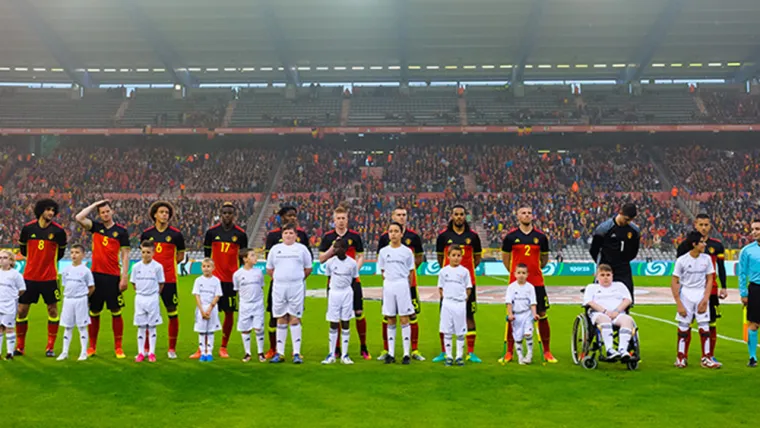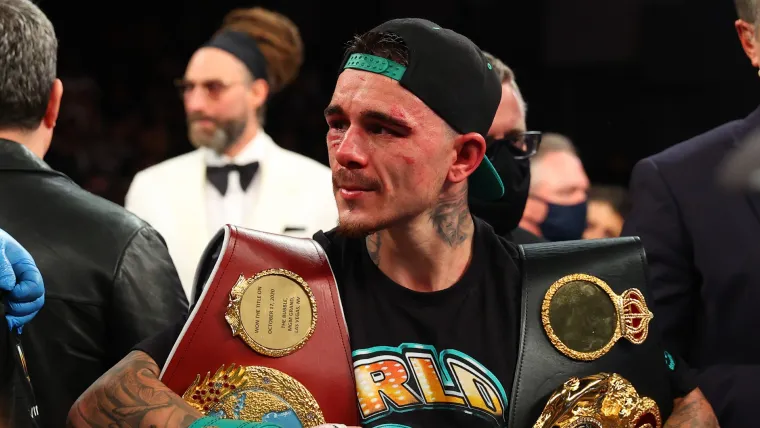It's been said that apathy is worse than anger. If that's true, MLB could be in trouble.
We're more than a month into the MLB lockout, with negotiations basically non-existent, spring training reporting dates creeping closer, and lots of sports fans greeting it all with a full-throated ... meh.
If a recent poll from Seton Hall University is to be believed, a large chunk of sports fans looks at the lack of lockout progress not with anger or impatience, but with indifference.
MORE: Why Shohei Ohtani was the easy choice for 2021 Athlete of the Year
The survey of 1,570 adults last month found that 44 percent of respondents who identify as avid sports fans would be less interested in big league baseball when the 2022 season begins. That should strike MLB as a disturbingly high number. But even if the Powers That Be wave that away, there's another troubling revelation from the poll: 54 percent of the general public responded that it had no interest in MLB anyway.
Even if you're an optimistic sort about baseball's current state, this sure seems like bad news for MLB's players and leadership. And the longer the lockout persists, the wider the path to apathy grows.
"We know from previous work stoppages, whether initiated by management (lockout) or labor (strike), that fans tend to come back. Today, however, there is immense competition in entertainment," said Charles Grantham, director of Seton Hall's Center for Sport Management. "These numbers are not encouraging and should be very concerning for a sport attempting to reverse a steady decline in ratings and attendance.”
The poll numbers match other evidence that paints a potentially grim picture, even when factoring in necessary caveats.
MLB attendance hit a 37-year low in 2021, with the average per-game attendance falling for the fifth straight season (not counting the fanless 2020 season). Though a large share of blame for 2021 attendance can be levied at pandemic-necessitated restrictions in the first half of the season, the drop is still plenty noteworthy because there wasn't a corresponding increase in home viewership, which was down 12 percent from 2019. And while some of that decrease was due to fewer broadcasting options in parts of the country, the fact remains that fewer people are watching baseball as a leisure activity — and the ones who are watching are an increasingly older set.
As of 2017, the average age of MLB fans/viewers was 57, up from 52 in 2000. Compare that with the average age of fans in the NFL (50), the NBA (42), the NHL (49) and MLS (40), and it's clear that baseball faces a major challenge if it hopes to cultivate a younger and more diverse audience. But that would be the case in a normal year without a work stoppage. That these numbers exist in a lockout winter void of any good baseball news only emphasizes that MLB risks even more lost money in the long run, not to mention diminished cultural influence, if it continues to give its fans and potential fans reasons to find replacement entertainment.
This is where these discussions usually get repetitive, with the Usual Suspects behind baseball's problems each taking a bow: long games, slow pace, dwindling on-field action, poor marketing, subpar leadership. But their familiarity in these debates doesn't make their effects any less real.
MORE: The 50 greatest seasons in sports history, ranked
Though MLB has had some wins lately — the "Field of Dreams" game was a hit last August, viewership was up slightly for the 2021 World Series and streaming apps and digital platforms for watching games are growing — baseball still has an interest problem within the greater sports and entertainment landscape. This isn't necessarily surprising, given the ever-growing list of leisure options. But it's not nothing, either.
MLB has seemed to operate with an "if we play it, they will come" mentality for a long time, resting on decades of laurels and seeming to believe that its relative lack of spectacle, dearth of household names and increasing cost of attendance would have little bearing on the sport's health or popularity. In other words: "People will come, Ray. People will most definitely come."
While that makes for moving film dialogue to tap into a longing for an idealized version of baseball, the sentiment hasn't been truthful for a long time, and it certainly won't have any basis in reality for much longer under our current circumstances.
Though it's probably true that most die-hard baseball fans will lose little if any interest in the sport they love no matter what, keeping those people engaged shouldn't be the goal, especially when they tend to skew much older than the average sports fan. Getting younger butts into seats, and younger eyes to watch, and younger brains to care is the challenge for the foreseeable future.
The longer the lockout lasts, the longer MLB's owners and players give us little reason to think about their sport beyond bemoaning its inability to get its act together, the tougher the challenge becomes.
So how can MLB — both players and owners — reverse those poll numbers from Seton Hall? How much time is left before they become irreversible? The solutions are mostly debatable, but one is indisputable: They have to play the games. MLB must have a product to showcase. That means this labor dispute must end quickly so MLB and its players can make their latest sales pitch to millions of fans and would-be customers.
There's plenty about modern baseball to love, but admirers can't become infatuated and fall in love if there's nothing with which to woo them. Any significant delay to the 2022 season carries big potential risks, from short-term revenue to long-term resilience. So it's best to have no delay at all.
There may have been a time when "if we play it, they will come" was a reasonable operating philosophy. But we're certainly not there anymore. There are now other "ifs" to consider — including what happens if baseball slips further in the public's entertainment conscience.
It's an outcome that would likely push baseball from importance to irrelevance.



